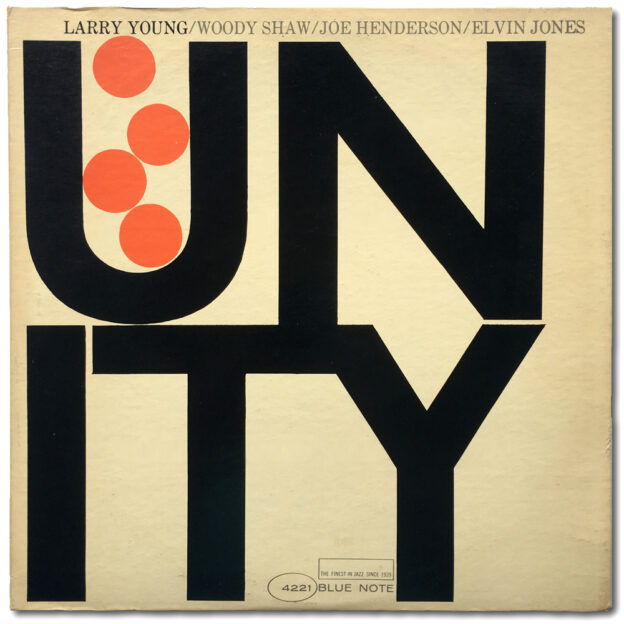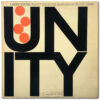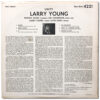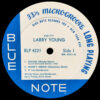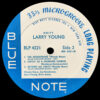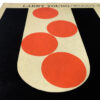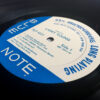- Second “earless” mono pressing circa 1967
- “NEW YORK USA” address on both labels
- “VAN GELDER” stamped in dead wax
Personnel:
- Woody Shaw, trumpet
- Joe Henderson, tenor saxophone
- Larry Young, organ
- Elvin Jones, drums
Recorded November 10, 1965 at Van Gelder Studio, Englewood Cliffs, New Jersey
Originally released August 1966
Selections:
“If”
“The Moontrane”
Well I’ve come full circle with most of that. Finding an earless mono copy in excellent condition for a fair price on Discogs recently forced my hand at giving the album another chance, and all kinds of great musical things started jumping out at me. Being a big Monk fan, “Monk’s Dream” got my attention first, and I found a new appreciation for its tag-team arrangement featuring Young and drummer Elvin Jones. From there, it became clear how incredible Jones sounds on this album and how well his kit was recorded by engineer Rudy Van Gelder. Over time I’ve also become a bigger fan of the sound coming out of Van Gelder’s Englewood Cliffs studio in the mid ‘60s. Distinguished from all of the engineer’s previous eras by a “softer” approach to recording and mastering, there is a smoothness to these 1965 takes that starkly contrasts with the more heavily compressed instrumentation on other Van Gelder albums recorded in 1963 and 1964 like The Sidewinder (BLP 4157), Search for the New Land (BLP 4169), and Song for My Father (BLP 4185).
Other standout tunes on Unity include “If” and “The Moontrane”, composed by frontmen Joe Henderson and Woody Shaw, respectively. I’m not the biggest fan of Henderson or Shaw, but the pair’s contribution as songwriters here is paramount to the album’s classic status. As for this band’s interpretation of “Softly as in a Morning Sunrise”, I prefer Sonny Rollins’ (BLP 1581, A Night at the Village Vanguard) and Sonny Clark’s (BLP 1579, Sonny Clark Trio) treatments of the standard, and in auditioning this album multiple times over the years I probably rarely got past Shaw’s “Zoltan”: for the most part I enjoy the melodies here, but its dissonant “C” section leaves the door open for chaotic improvisation and Joe Henderson seems to take advantage of that more than any other band member.
Not a perfect album for this jazz fan, Unity is nonetheless a gorgeous recording of four adventurous musicians that I have returned to countless times since acquiring it. Though the more progressive frontline pairing of Henderson and Shaw make it a challenging listen, the more tempered post-bop leanings of Young and Jones are the main reason I keep coming back for more.

